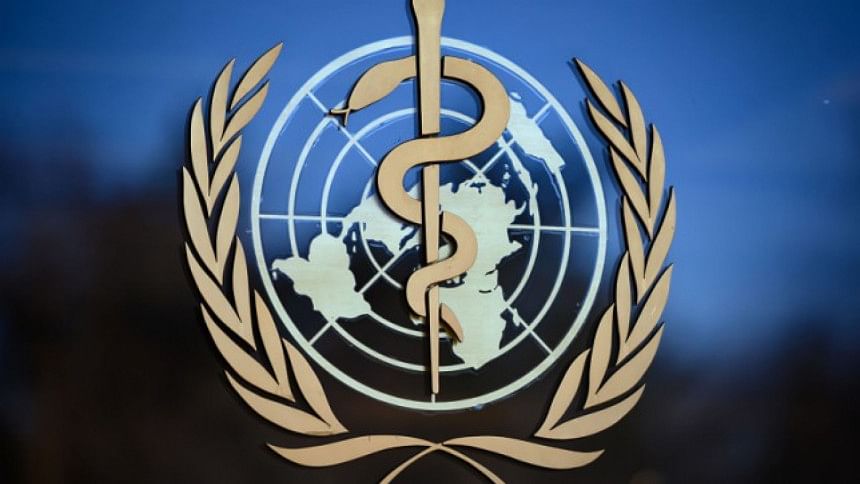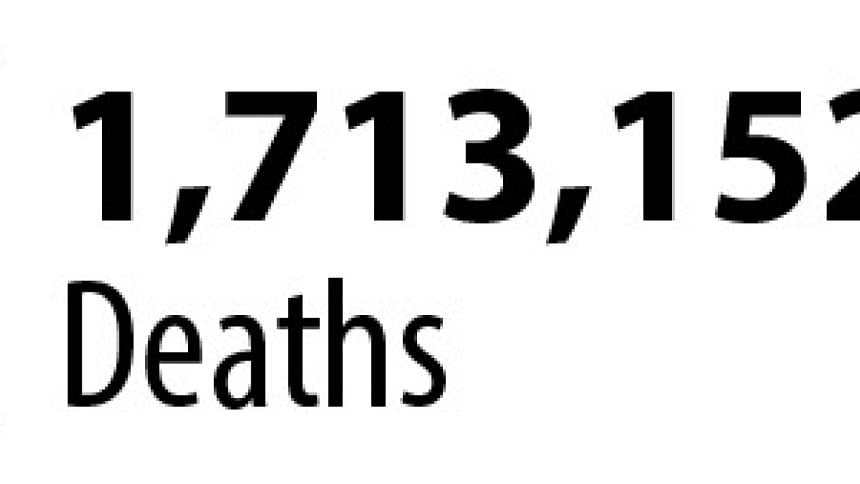No need for major alarm

The World Health Organization cautioned against major alarm over a new, highly infectious variant of the coronavirus that has emerged in Britain, saying this was a normal part of a pandemic's evolution.
WHO officials even put a positive light on the discovery of the new strains that prompted a slew of alarmed countries to impose travel restrictions on Britain and South Africa, saying new tools to track the virus were working.
"We have to find a balance. It's very important to have transparency, it's very important to tell the public the way it is, but it's also important to get across that this is a normal part of virus evolution," WHO emergencies chief Mike Ryan told an online briefing.
"Being able to track a virus this closely, this carefully, this scientifically in real time is a real positive development for global public health, and the countries doing this type of surveillance should be commended."
Citing data from Britain, WHO officials said they had no evidence that the variant made people sicker or was more deadly than existing strains of Covid-19, although it did seem to spread more easily.
Countries imposing travel curbs were acting out of an abundance of caution while they assess risks, Ryan said, adding: "That is prudent. But it is also important that everyone recognises that this happens, these variants occur."
WHO officials said coronavirus mutations had so far been much slower than with influenza and that even the new UK variant remained much less transmissible than other diseases like mumps.
They said vaccines developed to combat Covid-19 should handle the new variants as well, although checks were under way to ensure this was the case.
"So far, even though we have seen a number of changes, a number of mutations, none has made a significant impact on either the susceptibility of the virus to any of the currently used therapeutics, drugs or the vaccines under development and one hopes that will continue to be the case," WHO Chief Scientist Soumya Swaminathan told the briefing.
A US official advising the country's Operation Warp Speed vaccine program also stressed that more information was needed to establish the risk of the UK variant.
"There is no hard evidence that this virus is actually more transmissible, (but) there is clear evidence that there is more of it in the population," said Moncef Slaoui, a vaccine scientist and former pharmaceutical executive.
Meanwhile, Europe was trying to forge a coordinated response to the threat of the new variant yesterday.
Its discovery has heightened fears that led more than two dozen countries around the world suspend flights from the UK out of precaution.
With the bans unleashing travel chaos during the holiday season, EU ambassadors were set to meet yesterday to try to nail down a unified approach and work out how to eventually lift the border restrictions with Britain -- possibly by imposing a requirement for tests on all arrivals.
The World Health Organization in Europe said it would also convene its members to discuss how to handle the outbreak and cautioned that "limiting travel to contain spread is prudent until we have better info."
WHO's regional director for Europe Hans Kluge said in a post to Twitter that the organisation would "discuss strategies for testing, reducing transmission & communicating risks."
Around the world, the death toll from the virus surpassed 1.7 million yesterday, according to an AFP count, with the highest number of daily fatalities reported in the US, Germany and Russia.
VACCINE CAN ADAPT
Germany yesterday extended its ban on arrivals from the UK -- as well as South Africa, where a similar variant has been found -- until January 6.
Health Minister Jens Spahn said that "as long as it is possible", Germany aimed to prevent "potentially dangerous virus mutations from spreading in continental Europe".
The border closures come as the European Union prepares to start rolling out the Pfizer-BioNTech vaccine on Sunday, following similar vaccination campaigns in the UK and the US.
The EU's medicines regulator recommended the Pfizer-BioNTech vaccine for use in the bloc's 27 states.
In the US, the world's worst-affected country, 78-year-old President-elect Joe Biden received a Pfizer-BioNTech vaccine live on television to boost Americans' confidence in the shots.
And after a long delay, US lawmakers finally approved a $900 billion relief package to help Americans struggling to stay afloat in the pandemic-hit economy.
The Indian state of Maharashtra has imposed a night curfew on cities including the country's financial hub Mumbai because of fears about the new strain from Britain.
In addition, Mumbai airport said yesterday that all air passengers from anywhere in Europe or the Middle East will have to go into institutional quarantine upon arrival and then be tested.


 For all latest news, follow The Daily Star's Google News channel.
For all latest news, follow The Daily Star's Google News channel. 



Comments